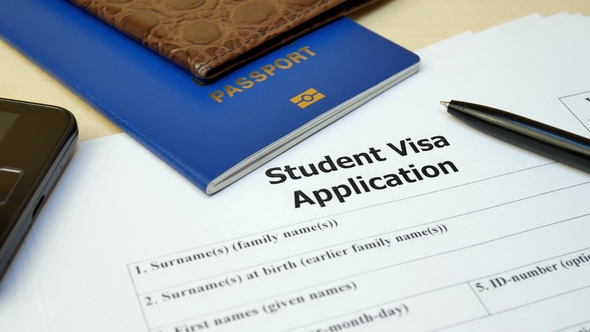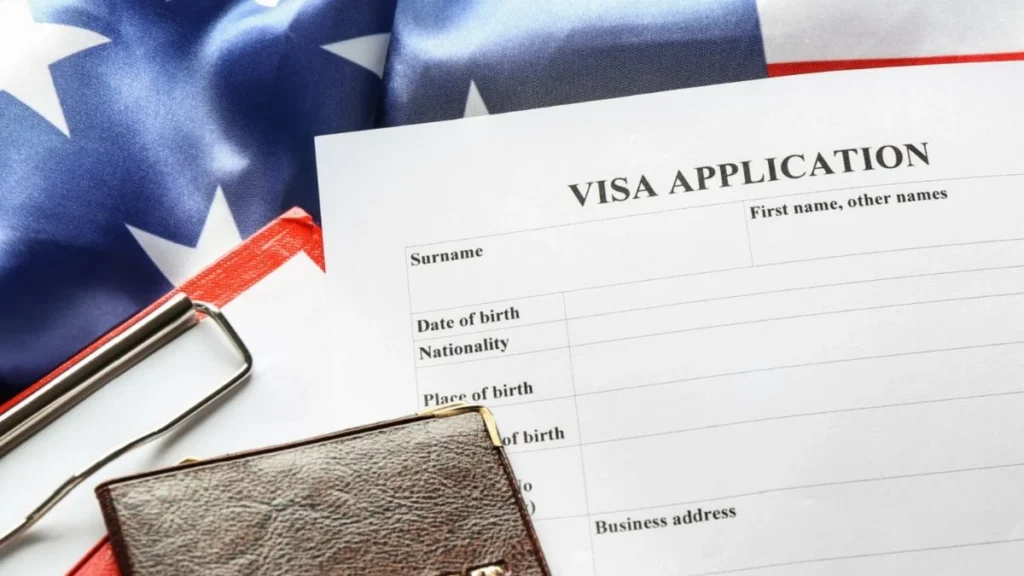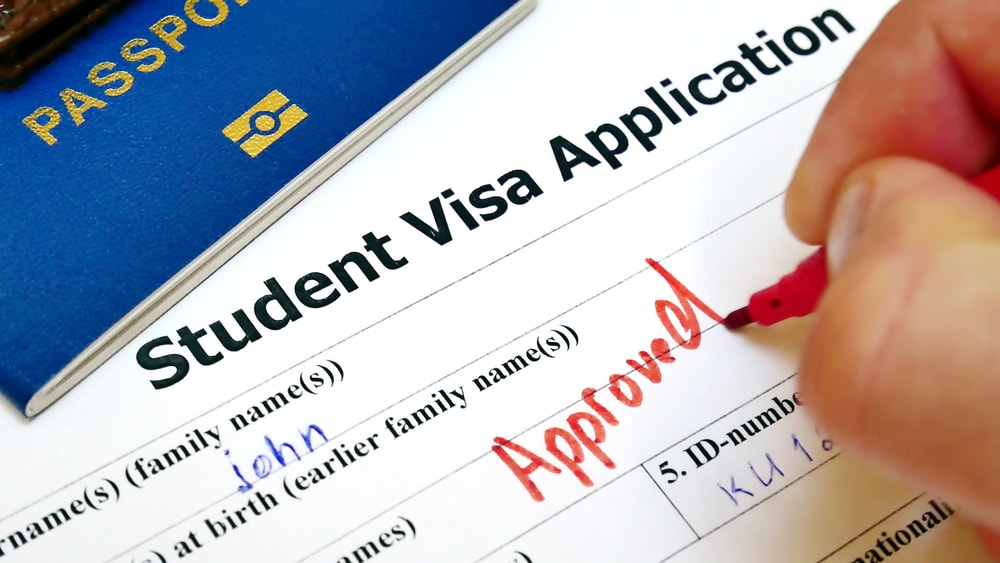An F1 visa is a non-immigrant visa issued to international students who wish to study in the United States. It allows them to enter the U.S. for the purpose of full-time academic or language studies at accredited institutions such as universities, colleges, or other academic institutions.
To obtain an F1 visa, students must first apply and be accepted by a Student and Exchange Visitor Program (SEVP)-approved school in the U.S. They also need to demonstrate proof of financial resources to support themselves during their studies and show intent to return to their home country after completing their studies.
Additionally, F1 visa holders are usually allowed to work on-campus and may be eligible for limited off-campus employment under certain conditions.
What are the eligibility criteria for an F1 visa?

To be eligible for an F1 visa, individuals must meet certain criteria:
Acceptance into a SEVP-approved school
This entails receiving an official acceptance letter from a U.S. educational institution that is certified by the Student and Exchange Visitor Program (SEVP).
The institution must provide the applicant with a Form I-20, Certificate of Eligibility for Nonimmigrant Student Status, which is required for the visa application process.
Proof of financial support
Applicants must demonstrate they have sufficient funds to cover the entire duration of their academic program in the United States.
This includes tuition fees, living expenses (housing, food, transportation, health insurance), books and supplies, and other miscellaneous expenses.
Documentation can include bank statements, affidavits of support, scholarship award letters, or financial sponsorship letters.
Intent to return to home country
Consular officers assess an applicant’s ties to their home country to ensure they do not intend to immigrate permanently to the United States.
Evidence of ties can include family relationships, property ownership, employment prospects, professional or academic goals in the home country, and any other commitments that indicate a clear intention to return after completing studies.
Proficiency in English
Demonstrating English proficiency is typically required for admission to U.S. educational institutions. Applicants may need to provide scores from standardized English language tests such as the TOEFL or IELTS.
Some schools may offer conditional admission or English language programs for students who do not meet the required proficiency levels.
Nonimmigrant intent
Applicants must convince consular officers that they intend to enter the United States solely for the purpose of studying and will return to their home country upon completion of their program.
This can be demonstrated through the clarity of their educational goals, a well-defined study plan, and evidence of ties to the home country.
Maintenance of status
F1 visa holders must adhere to specific regulations to maintain their legal status while in the United States. This includes enrolling in a full course of study each semester or term, making satisfactory academic progress, refraining from unauthorized employment (except for limited on-campus employment or authorized practical training), and reporting any changes in academic program or address to the designated school official (DSO).
How to apply for an F1 visa?

To apply for an F1 visa, which is a non-immigrant student visa for those wishing to pursue academic studies in the United States, follow these steps:
Before applying for an F1 visa, you must be accepted by a SEVP-approved school in the United States and obtain a Form I-20 from that school.
The Student and Exchange Visitor Information System (SEVIS) fee must be paid before your visa interview. This fee is separate from the visa application fee. You can pay this fee online.
Fill out the DS-160 form online. This form collects your personal and travel information.
Visit the website of the U.S. Embassy or Consulate where you will apply for your visa to schedule an interview. Wait times for interview appointments can vary, so it’s advisable to schedule your interview well in advance.
Pay the visa application fee, which is required for processing your application. The fee amount can vary depending on your country and the type of visa you are applying for.
Gather Required Documents: Prepare the necessary documents for your visa interview. These typically include:
- A valid passport
- Form DS-160 confirmation page
- SEVIS fee payment receipt
- Form I-20 issued by your U.S. school
- Financial documents demonstrating your ability to cover tuition and living expenses in the U.S.
- Academic transcripts and diplomas
- Standardized test scores (such as TOEFL or SAT)
- Any other documents requested by the U.S. Embassy or Consulate
On the day of your interview, arrive at the Embassy or Consulate on time and with all required documents. Be prepared to answer questions about your academic plans in the U.S., your ties to your home country, and your ability to finance your studies.
After your interview, the consular officer will determine whether you qualify for the F1 visa. If approved, your passport will be returned to you with the visa, typically within a few days to a few weeks, depending on your location.
What are the duration and conditions of an F1 visa?
An F1 visa lets people study in the United States. It’s for going to school there for a while. How long you can stay depends on your school’s program. You have to be a full-time student and do well in your classes. If anything changes, like your address, you have to tell your school.
You can’t work unless it’s allowed, like on campus. It’s important to follow all the rules to stay in the U.S. safely. There are times when you can come early or stay after your program ends. It’s like a special time for you to get ready. Make sure you know the rules to have a good time studying in the U.S.!
Final Words
Getting an F1 student visa is a big step for international students wanting to study in the United States. It offers many opportunities for learning and growth. Remember, meeting the eligibility criteria and following the application process carefully are crucial.
Once you have your visa, make sure to understand its duration and conditions. Stay focused on your studies, and enjoy the benefits that come with being an F1 visa holder, like optional practical training.
If you ever need help or information, don’t hesitate to reach out to your school’s international student office or the U.S. Citizenship and Immigration Services (USCIS). Good luck with your studies and your journey in the U.S.!
